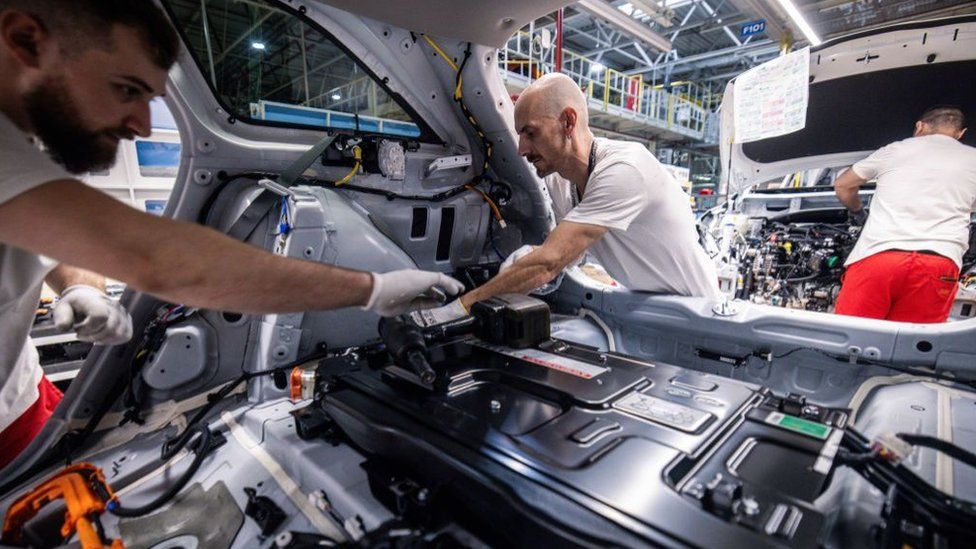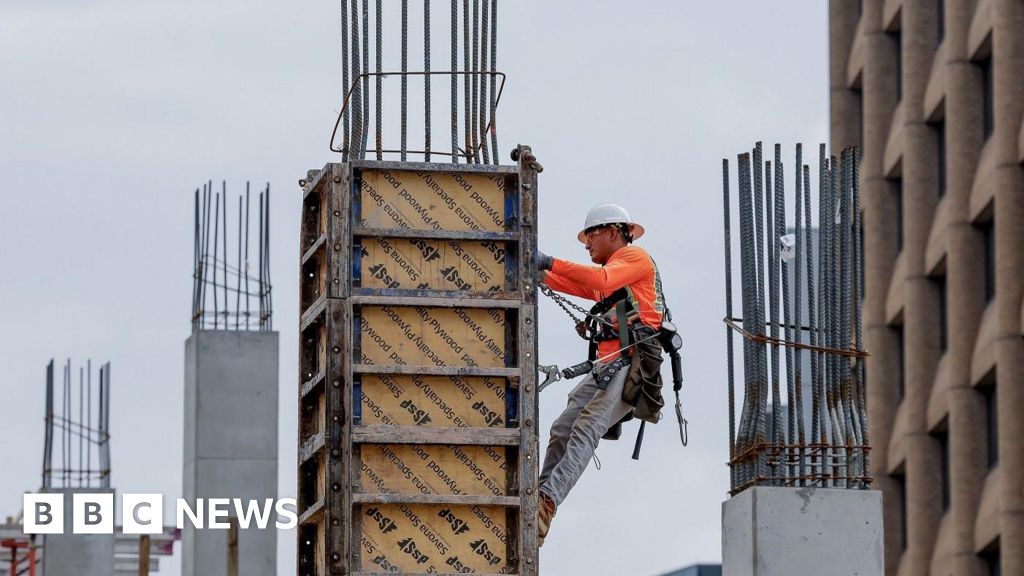ARTICLE AD BOX
 Image source, Getty Images
Image source, Getty Images
The US is ramping up rules aimed at boosting electric vehicle production
The US has unveiled rules aimed at keeping Chinese components out of electric cars sold in the country.
The restrictions are tied to government incentives for electric cars made in America.
The hotly-debated limits are intended to help build up the industry in America, but critics say they could slow adoption of electric cars.
Chinese firms currently produce the vast majority of electric car batteries and the minerals used in them.
But US politicians have cast over-reliance on Chinese manufacturers as an economic and security risk.
Planned partnerships between major firms, such as Ford and China's CATL, a battery manufacturer, have been subject to criticism and debate.
Last year, Congress passed a climate law offering billions in tax incentives and other money to try to boost the industry in the US.
The law included a tax incentive worth up to $7,500 per vehicle for buyers of electric cars made in America.
The climate law, which the White House says has sparked nearly $100bn in private investment in the US related to electric cars, immediately barred electric cars made outside the country from receiving tax credits.
Starting in 2024, the law also barred cars from eligibility for tax credits if they contain battery components manufactured or assembled by a "foreign entity of concern".
By 2025, the restrictions will expand to cars that contain critical materials extracted, processed or recycled by such an entity.
The proposal announced on Friday says the government will define a "foreign entity of concern" as a company headquartered in or owned or controlled by China, Russia, Iran or North Korea.
Any company in which the government of these countries holds 25% or more of a board's seats, voting rights or shares would fall under the rules, which now open for a period of public comment.
"President Biden entered office determined to reverse the decades-long trend of letting jobs and factories go overseas to China," said John Podesta, senior adviser to the President for Clean Energy Innovation and Implementation.
"Thanks to the Investing in America agenda and today's important guidance from Treasury and the Department of Energy, we're helping ensure that the electric vehicle future will be made in America."
Only about 20 of more than 100 models of electric vehicles for sale in the US currently qualify for the tax credit, according to the Alliance for Automotive Innovation (AAI), a lobby group representing carmakers, which said the guidance offered much needed clarity to their members.
It said it appeared that cars produced using batteries and materials from certain kinds of partnerships with Chinese firms, if located in the US, would not run afoul of the rules.
It also praised officials for exempting certain "trace" materials from the rules for two more years.
"The EV transition requires nothing short of a complete transformation of the US industrial base. It's a monumental task that won't happen overnight," AAI president John Bozzella wrote.
"The Treasury guidance recognizes the complexity of this task and the challenges facing automakers with some good balance."

 1 year ago
36
1 year ago
36








 English (US) ·
English (US) ·